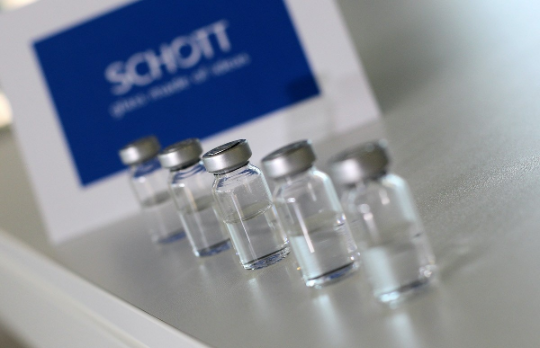As vaccinations start, supply chain security is key
Dnyanesh Kamat | 23 December 2020
The supply must be protected from those who seek to profit by creating chaos, by greed or by illicit trade
The main threat that should occupy government officials’ minds right now is disruptions to the supply and distribution of Covid-19 vaccines. Such disruptions may come from mischievous states, terrorists or criminal gangs.
The procurement of vaccines will rely on complex coordination among thousands of government and private-sector entities. This includes the consortiums creating the vaccines and suppliers of glass vials and dry ice to ensure proper storage.
On the distribution side, hospitals and pharmacies will become points of delivery for the vaccine. The distribution will be relatively easier in centralized health-care systems like that of the UK, and enormously complex in decentralized systems like that of the US.
Already, there are worries. Last week, US Secretary of State Mike Pompeo accused Russia of being behind a massive hack of government and private corporations in the US. In this case, the objective seems to have been conventional espionage – that is to say, to steal information.
Yet the hack, which went undetected for several months, had the ability to take control of industries, to corrupt or destroy data and to shut down key government processes completely.
Officials worldwide thus must be vigilant in protecting against cyber attacks and in working with private companies that will roll out the Covid vaccine. Companies such as IBM already have warned of cyber attacks targeting manufacturers that produce solar panels to power refrigerators meant to keep vaccines cool in infrastructure-poor areas.
IBM also warned of attacks against companies making the dry ice required in vaccine packaging. Also targeted was the European Commission’s agency responsible for importing vaccines.
Cyber attacks are not only designed for the straightforward objective of thwarting vaccine distribution. The objective of any malign state against another state’s vaccine program is to compromise the target country’s domestic stability, national security and economy. But the more sinister aim is to reduce public trust in government institutions.
Experts reckon that the pandemic will truly end only when about 60-70% of the population receives a high-efficacy vaccine. Cyber attacks on vaccine programs achieve the twin objective of reducing overall vaccination rates and increasing general distrust between people and governments and will sharpen the likelihood of civil and political unrest.
There is a lot of work governments must do to inspire confidence. The British government would do well, for example, to avoid a situation like that of last March, when close to US$11 billion worth in emergency contracts to produce ventilators, personal protective equipment and other supplies were handed out to firms with links to the ruling party and government figures.
Such perceptions of cronyism become fertile ground for hackers and peddlers of disinformation.
Next, terrorist groups may launch opportunistic attacks by taking advantage of large groups of people congregating at vaccination camps. This may occur for reasons of ideology or to embarrass governments.
Islamist militants have routinely targeted polio vaccination camps in places as far afield as Nigeria and Pakistan.
In the United States, there has been a curious convergence of interests between armed militias upholding the right to bear arms and anti-masker groups suspicious of government mask mandates. These groups may be able to exploit a population rife with conspiracy theories fomented by anti-vaccine groups.
Indeed, a poll from October found that 63% of Americans had concerns about a Covid vaccine.
The other type of non-state actor capable of disrupting vaccine roll-out campaigns is criminal gangs. Interpol has warned of mafia groups seeking to steal vaccines and sell them illegally. Vaccines, it says, will be the “liquid gold” of the new decade.
There is also the risk of counterfeit vaccines being sold online. This is already taking place and is likely to entrap individuals from developing countries whose governments may not distribute vaccines in 2021.
Last, another form of supply-chain disruption may come from direct state action, as was seen at the beginning of the pandemic in relation to medical supplies. At the time, buyers from rich countries such as the US wrested control of medical supplies that others had already paid for, by offering many times the selling price.
This was called an act of modern-day piracy at the time and has not been forgotten.
For example, Donald Trump’s recent “America First” executive order, which prioritizes vaccine access for Americans, raised concerns in Canada, whose vaccine supply will come from manufacturing plants in the US.
Countries would do well to eschew this type of “vaccine nationalism” and let vaccine-makers’ contractual obligations play out so as to avoid global disruption.
The rollout of vaccines has allowed the world to glimpse the possibility of normalcy. In order for it to become a reality, the supply of inoculating shots must be protected from those who seek to profit by creating chaos, by greed or by illicit trade.
Dnyanesh Kamat is a political analyst who focuses on the Middle East and South Asia. He also advises governments on policies and strategic initiatives to foster growth in the creative industries such as media, entertainment and culture.
This article was originally published on Asia Times.
Views in this article are author’s own and do not necessarily reflect CGS policy.
